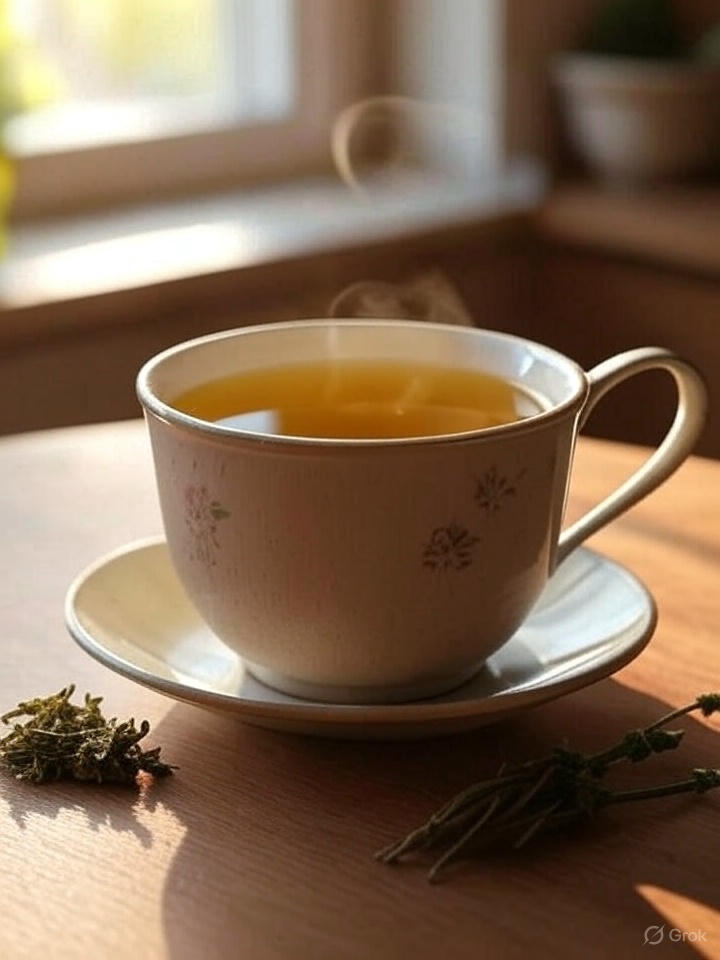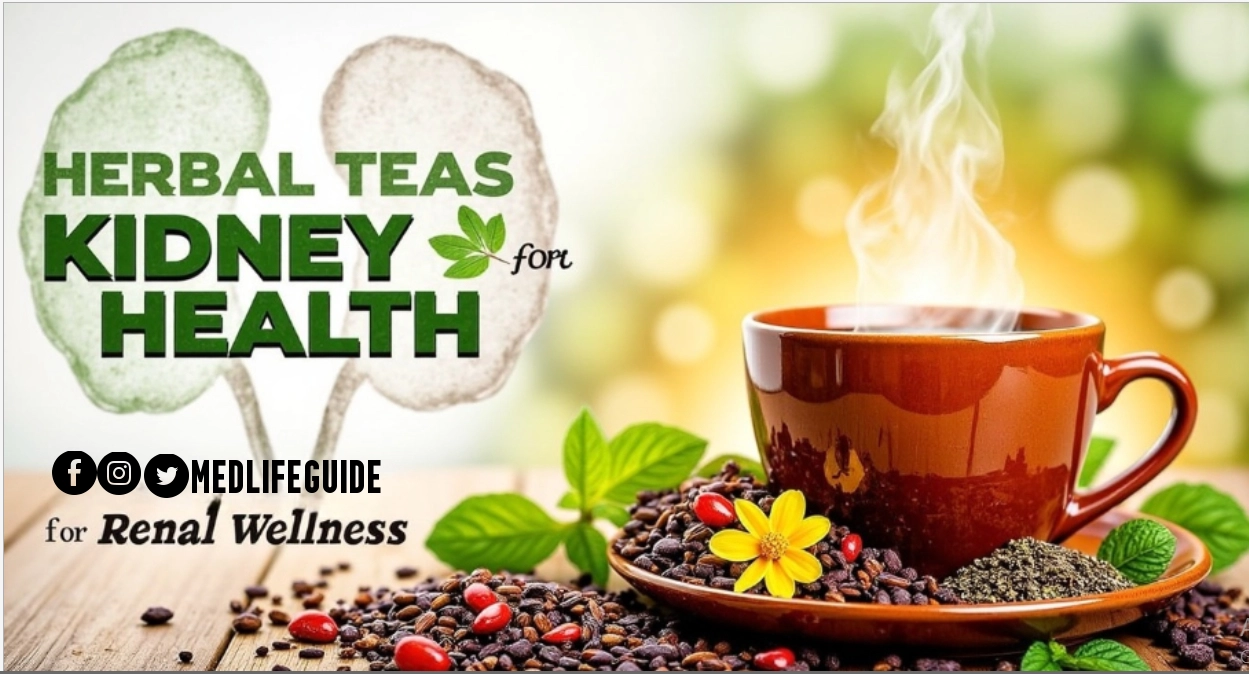Herbal Teas for Kidney Health
Herbal teas are useful for preventing and managing kidney stones. They mainly work by increasing urine flow, which helps remove toxins.
Benefits of Different Herbal Teas
Several herbal teas can support kidney health:
- Green tea: Contains antioxidants and catechins that may help prevent stones.
- Dandelion tea: Drink 2-4 cups for best results to help prevent stone formation.
- Nettle leaf tea: Acts as a natural diuretic, promoting healthy urine production and eliminating minerals.
- Hibiscus tea: Used in traditional Thai medicine to prevent and treat urinary stones, offering beneficial polyphenols and antioxidants.
- Horsetail tea: Also beneficial for kidney health.
Importance of Fluid Intake
Herbal teas help add fluids, which may lower the risk of kidney stones. They can complement your increased water intake.
Consult Your Healthcare Provider
If you have kidney disease, it’s best to check with your healthcare provider before trying herbal remedies. Some herbs may interact with medications.
The Benefits of Green Tea for Kidney Health
Green tea is generally safe and does not often raise the risk of kidney stones. In fact, recent studies show that green tea may help protect against kidney stone formation.
Why Choose Green or Oolong Tea?
Green and oolong teas have lower oxalate levels, making them good options for those at risk of kidney stones.
Understanding Oxalates
While green tea does contain oxalates, which can lead to calcium oxalate stones, drinking reasonable amounts is unlikely to cause them.
Coffee and Tea Intake
Higher coffee and tea intake may actually lower the risk of kidney stones, not increase it.
Recommended Consumption
For most people, drinking 2-3 cups of green tea daily seems safe and may offer kidney-protective benefits due to its antioxidants and anti-inflammatory effects.

Does Milk Tea Cause Kidney Stones?
Milk tea usually does not cause kidney stones. In fact, it may help prevent them.
Foods That Lower the Risk
Eating foods high in dietary calcium lowers your risk of kidney stones. These foods include:
- Milk
- Yogurt
- Cheese
- Fortified milk alternatives
- White beans
- Tahini
- Almonds
- Chia seeds
Calcium binds to oxalate before it reaches the kidneys.
Health Benefits of Fresh Milk Tea
Fresh milk tea does not raise the risk of kidney stones. Health authorities support this claim. Studies show that tea drinkers have a 20% lower risk of kidney stones.
Although tea contains oxalates that can lead to stone formation, the calcium in milk tea helps neutralize these compounds. It binds with oxalates in the digestive system.
Key Takeaways
- Consume milk tea in moderation.
- Stay well-hydrated.
Calcium reduces the intestinal absorption of oxalate. This makes milk tea safer than plain tea for those worried about kidney stones.
Understanding the Myth of Tea and Kidney Stones
The belief that tea alone causes kidney stones is a common myth. Many people assume that drinks like coffee, milk, soda, and iced tea raise the risk of stones, but triggers can differ for each person.
What You Need to Know About Teas
Some teas, especially iced tea, contain oxalates that may lead to stones in sensitive individuals. However, drinks like:
- Coffee
- Tea
- Soda
do not heighten stone risk. This is because the water in these beverages helps prevent stones.
Key Research Findings
Research shows no significant link between black tea consumption and kidney stones in healthy individuals. The main factors that affect stone formation are:
- Individual susceptibility
- Hydration levels
- The type and amount of tea consumed
Conclusion: Moderation is Key
For most people, moderate tea drinking can aid hydration and may help prevent stones. However, those with a history of kidney stones should talk to their healthcare provider about their diet.
The Benefits of Green Tea for Kidney Stones
Green tea usually does not cause kidney stones. In fact, it may help prevent them. Research shows that green tea is safe and not linked to a higher risk of kidney stones. Some studies even suggest it has protective effects.
Why Choose Green Tea?
– Green tea has lower oxalate levels than other teas.- This makes it a better choice for those prone to kidney stones.
Scientific Evidence
Scientific studies indicate that green tea can inhibit urinary stone formation. This effect comes from compounds like EGCG, which offer antioxidant benefits and help stop calcium oxalate crystallization.
Moderation is Key
However, moderation is important. Drinking too much tea could lead to stone formation in some people. – Moderate green tea intake is safe.
- It may benefit those at risk of kidney stones, especially compared to drinks with higher oxalate levels.
For individuals with a history of calcium oxalate stones, green tea is one of the safer options. Still, individual tolerance can differ. It’s wise to consult healthcare providers about dietary choices if you have kidney stone concerns.
Quick Ways to Pass Kidney Stones
Water is the best way to dissolve and pass kidney stones quickly. Medical experts suggest drinking 2 to 3 quarts (1.8 to 3.6 liters) a day. This keeps urine dilute and helps stones pass.
Medications for Relief
For quick relief, doctors may prescribe alpha blockers, such as tamsulosin (Flomax). These relax ureter muscles, allowing stones to pass faster and with less pain.
Helpful Drinks
Citrate drinks, especially lemon water, can dissolve calcium-based stones by boosting citrate levels in urine. Other helpful drinks include:
- Apple cider vinegar mixed with water
Pain Management
For pain relief, anti-inflammatory medications like ibuprofen can help during this process. However, severe cases might need procedures like:
- Shock wave lithotripsy
- Ureteroscopy
Consultation is Key
Always consult a healthcare provider for the right diagnosis and treatment. The best method to dissolve a kidney stone depends on its type, size, and location.

